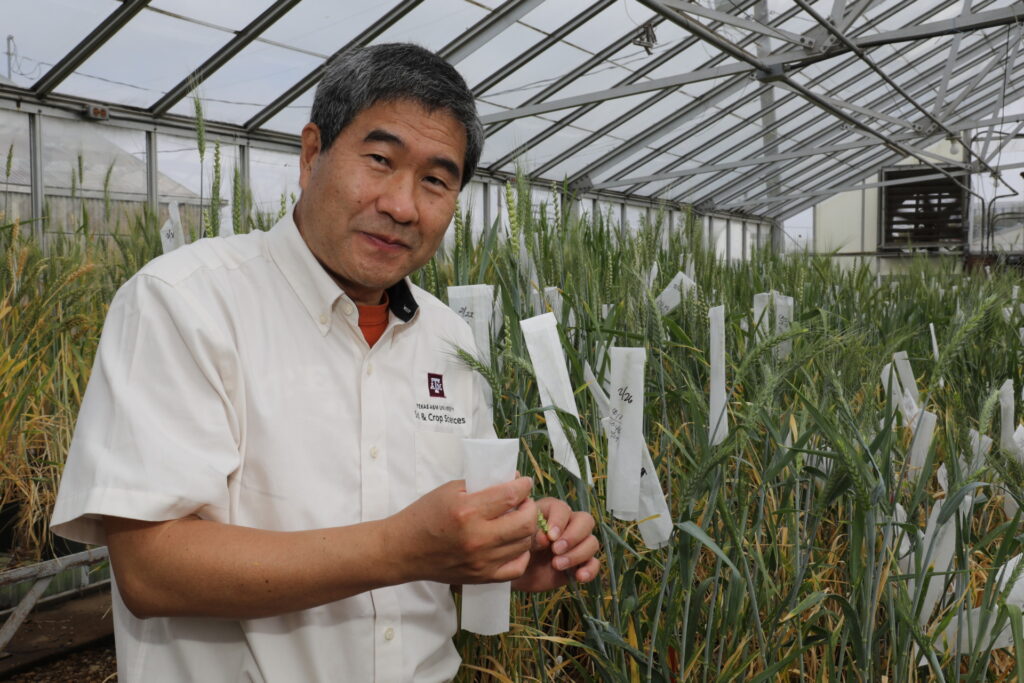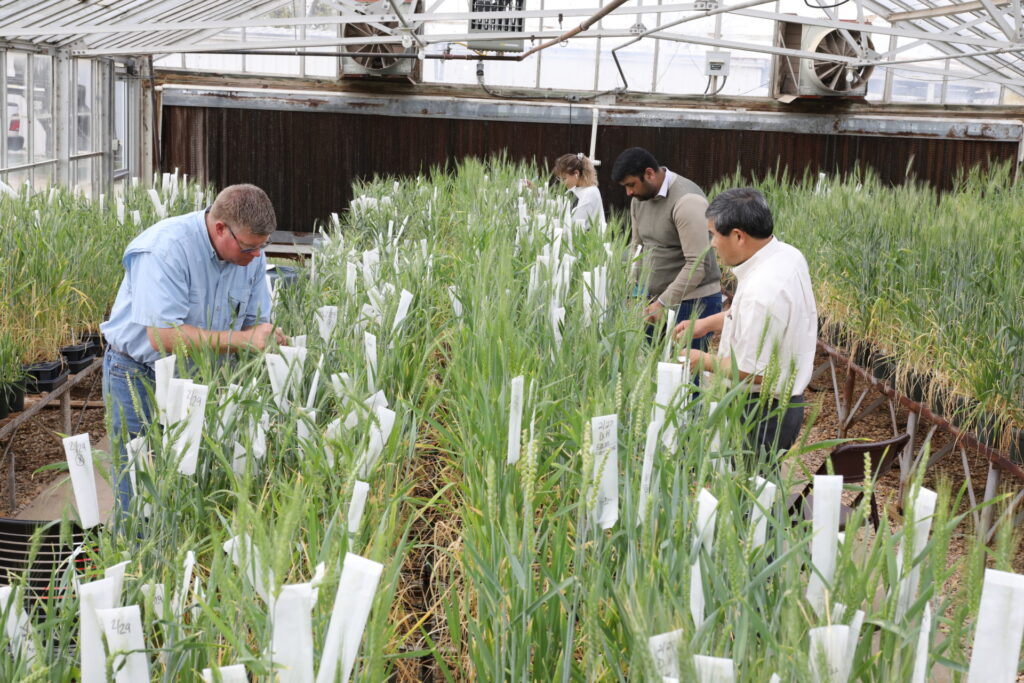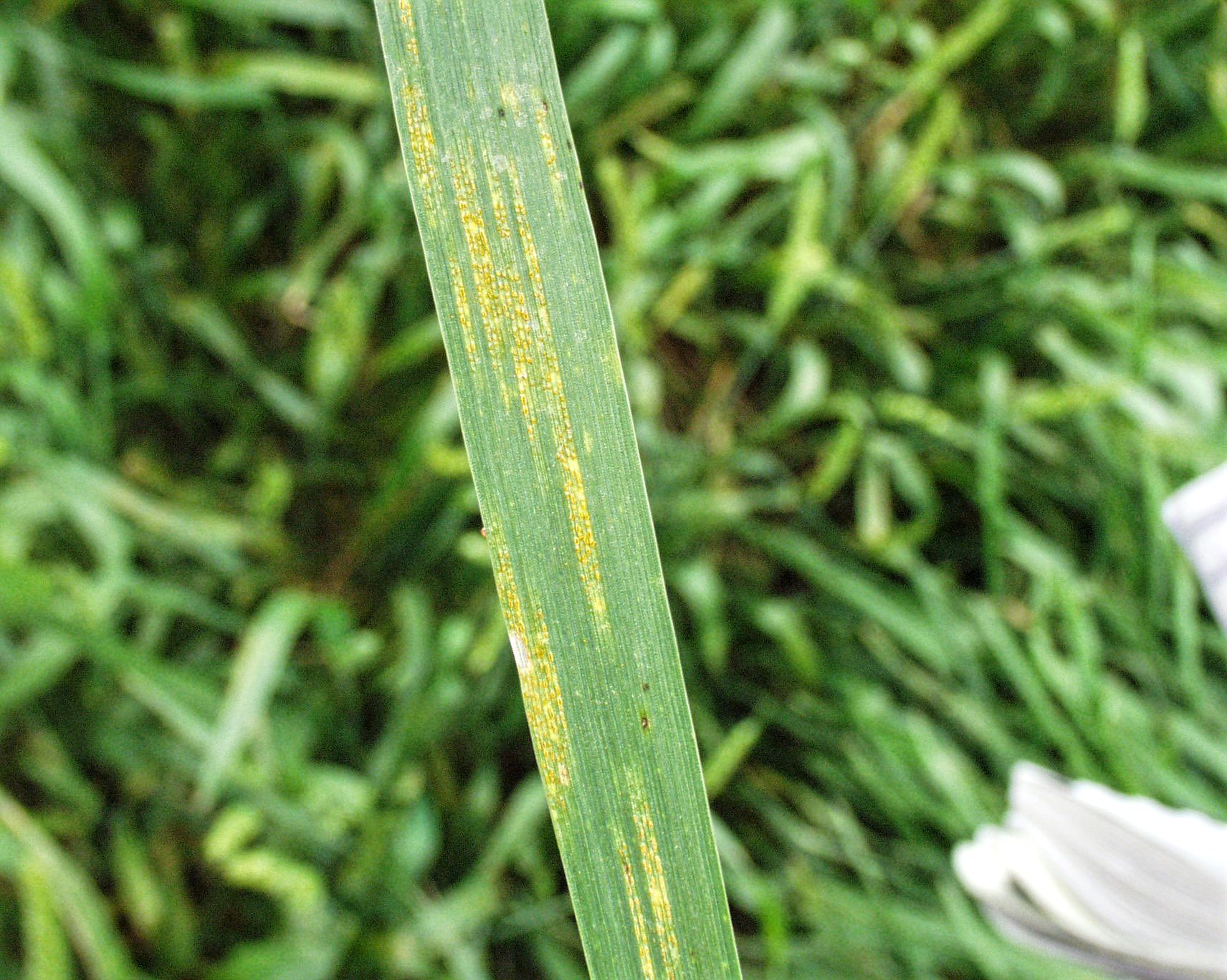Liu brings genetics expertise to AgriLife Research wheat breeding program
Familiarity brings smooth transition within Texas public wheat breeding program
The career of Shuyu Liu, Ph.D., has come full circle with his appointment as the Texas A&M AgriLife Research wheat breeder in the Texas A&M College of Agriculture and Life Sciences Department of Soil and Crop Sciences.

Liu, a wheat genetics, genomics and breeding professor, has significantly contributed to the AgriLife Research wheat program for the past 13 years. He was based at the Texas A&M AgriLife Research and Extension Center at Amarillo before moving in January to take on this new role in Bryan-College Station.
While he has a well-established reputation nationally and internationally for his wheat genetics work, Liu started his career 36 years ago in China as a wheat breeder. He conducted wheat genetics and breeding studies on yield, disease resistance, drought tolerance and quality at the Shandong Academy of Agricultural Sciences in Jinan, Shandong, China.
“I am very excited about my transition from a wheat geneticist to a breeder,” Liu said. “It is my dream job to be a breeder to develop and release better cultivars and contribute directly to improving food security and safety worldwide.”
Liu said he greatly and deeply appreciated all the support from AgriLife Research, the College and Texas A&M University to make this transition fast and smooth.
“This important position represents a convergence of world-class expertise bridging several units across Texas A&M,” said Amir Ibrahim, Ph.D., AgriLife Research associate director and chief scientific officer who held the wheat breeding role before Liu. “It will continue to be an immensely valuable scientific resource for Texans and Texas producers.”
AgriLife Research wheat breeding program
The U.S. Great Plains, including Texas, is a major winter wheat production region and can produce up to 40% of U.S. winter wheat. In Texas alone, the gross value of wheat production is around $480 million.
Wheat differs from other major crops grown in the U.S. in that public breeding programs actively develop commercial varieties. AgriLife Research has two Centers of Excellence that conduct variety development and basic genetic studies in wheat, oat and triticale.
The College Station Center of Excellence, which will now be led by Liu, targets Central Texas, South Texas and the Blacklands. Its primary breeding objectives are directed toward resistance to heat stress, leaf rust, stripe rust, stem rust, powdery mildew and Hessian fly.
The Amarillo-Vernon Center of Excellence, led by Jackie Rudd, Ph.D., AgriLife Research wheat breeder, targets the High Plains and Rolling Plains of Texas, with primary breeding objectives aimed at resistance to drought, wheat curl mite, wheat streak mosaic virus, greenbug and Russian wheat aphid.
“The Soil and Crop Sciences Department is thrilled to have Dr. Liu take on leadership of our center of excellence in wheat breeding at College Station with his growth over the past several years,” said David Baltensperger, Ph.D., department head. “We look forward to refilling his position in Amarillo to continue to support the genetics behind the breeding programs.”
A lifetime of breeding for better wheat genetics
Liu’s research objective as a geneticist was to understand genetic mechanisms for improving tolerance to drought, diseases and insects in wheat cultivars. He also identified new sources of tolerance to various stresses and molecular markers tightly linked to the target genes conditioning those tolerances. He has been instrumental in developing genetic and genomic tools for genomic-assisted selection and breeding.

Liu’s overall goals have been to expedite cultivar development and increase wheat’s climate resilience, stress tolerance, grain yield and breadmaking quality. He and his team have identified molecular markers associated with high yield, superior end-use quality and resistance to many of the major diseases and insects facing Texas wheat producers including stripe rust, wheat streak mosaic virus, greenbug, Hessian fly and wheat curl mite.
Those molecular markers were published and are used by the USDA-ARS genotyping lab to test wheat lines in the region.
He also led a project in which his team developed high-throughput molecular markers for major pest-resistance genes in wheat wild relatives. He made those markers available to wheat breeders to make the gene transfer more efficient. Liu and his team also developed new germplasms by combining superior genes from TAM 111, TAM 112, TAM 114 and wild wheat relatives.
Liu is a leader in developing tightly linked molecular markers for marker-assisted breeding for host-plant resistance in several major diseases and pests and their transmitted viral diseases. He also established a successful high-throughput wheat doubled haploid production system to shorten cultivar development time by three to four years.
His team integrated genomic-assisted breeding and doubled haploid into the current wheat-breeding pipelines to accelerate cultivar release with resistance to multiple stresses. This allows farmers to get the newly released cultivars sooner.
Background and education
Before coming to AgriLife Research, Liu was a research scientist at Virginia Tech in Blacksburg, Virginia, where he worked on breeding and genetic studies for resistance to Fusarium head blight, powdery mildew, rust and net blotch in wheat and barley.
He earned his doctorate in plant breeding and genetics from the University of Missouri-Columbia; his master’s degree from Colorado State University, Fort Collins, Colorado; and his bachelor’s degree from Shandong Agricultural University, Taian, Shandong, China.
His expertise has led to invitations to collaborate with well-known international wheat scientists, and he has published his research in high-impact journals, including Nature Biotechnology, Communications Biology and The Plant Journal.





